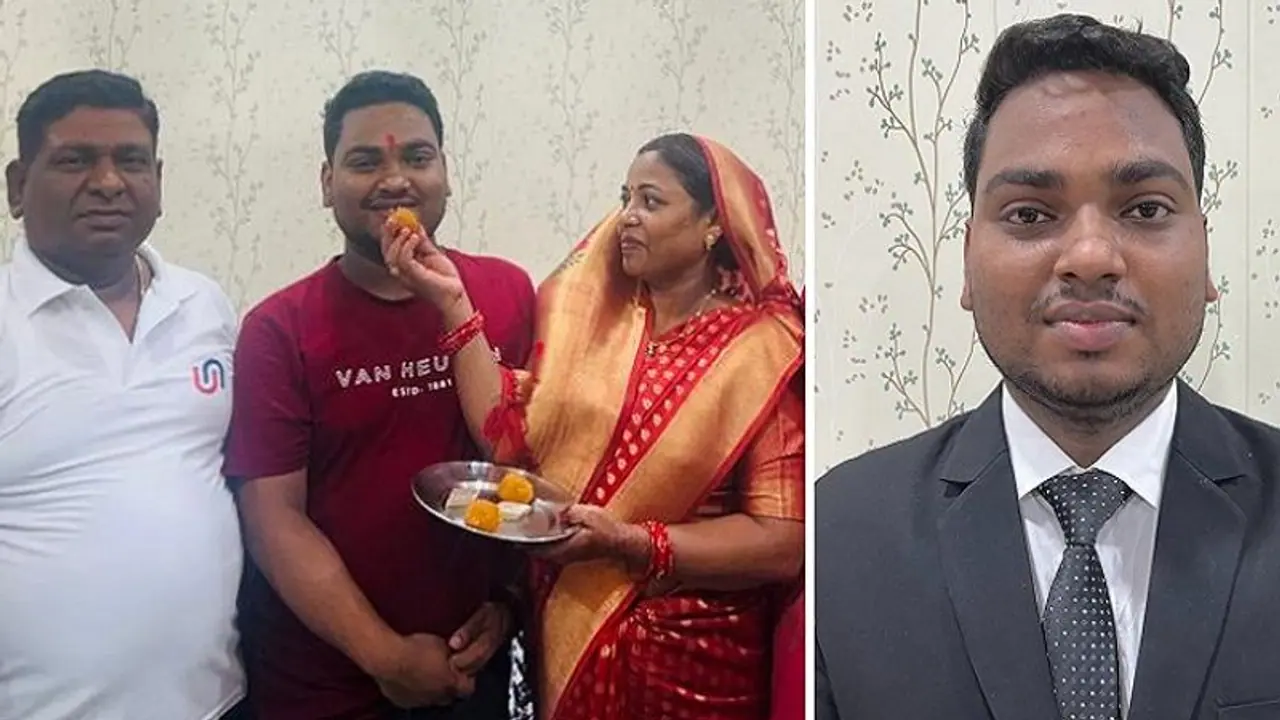Snehil Kunwar Singh from Jaunpur secured fourth rank in the results of UPPSC-J. Snehil’s father motivated him to study law. In this interview, he shares how his father introduced him to the various aspects of how the judicial system functions and the verdicts of the judiciary affects the society. Forging a deep interest in the law studies, Snehil decided to become a judge.
Who is Snehil Kunwar Singh?
Snehil is a resident of Khajuran village of Badlapur district. He is 23 years old and the only person in his family to pursue a career in law. His father, Sunil Kumar Singh, is currently a Deputy Regional Manager in Union Bank of India, Ghazipur. His mother is a homemaker. He has two older brothers. Amit Kumar Singh works as an agricultural scientist at Krishi Vigyan Kendra, Jaunpur. And Ankit Kumar, an alumnus of IIT Kanpur, is currently working in Japan.
Snehil did his early education from Central Public School and St. John’s School, Jaunpur. He completed his class 12th studies from Delhi schools due to his father’s transfer to the city. After completing his schooling, he cleared the CLAT entrance examination in his first attempt and took admission in National Law School of India University (NLSIU), Bangalore.
Excelling through self-study
Snehil shares that he did not enrol himself in any coaching centres and studied for the exams solely through self-study. He devoted 10-12 hours a day to his studies and passed the UPPSC-J in his first attempt with an impressive 4th rank.
Motivation for becoming a judge
Snehil stayed updated with the current affairs by reading the newspapers regularly. He would read about the bold decisions of the Supreme Court and the impact they have on the government and the society. His family was a constant support to him and encouraged him to join the judiciary. The thought of giving justice to the common public and working towards building a better nation, compelled him to stay focused in his preparation.
Interview questions
Snehil shares a bunch of questions that were asked from him during the interview.
Question- How will you assess an order of interim injunction?
Answer- Under the provisions in Order 39, the civil court has the power to decide on what grounds the interim injunction can be issued. In layman language, interim injunction is referred to as ‘stay’.
Question- Are you aware about the ideologies of Karl Marx? There are some elements of socialism in Article 39 clause B and C. How do you think the definitions of socialism vary in both contexts?
Answer- Karl Marx talks about giving power in the hands of the proletariats i.e., the workers. But society cannot move forward by giving all the power to just one group of people. In our Indian society, there is Fabian Socialism which allows both the parties to work together with an aim to make national progress.
Tips for preparation
Snehil shares that students must not feel disappointed after experiencing failures. With consistent practice, anything can be achieved. Special attention must be paid to the provisions of the Bare Act. Making notes is a vital part of the process as it will help the students remember all the topics. Try to make logical relations with the Acts and their social impacts. If a student is able to understand the reason why certain Act is formed, it will become 80 percent easier to understand the syllabus.
Moreover, paying complete attention is pivotal and distractions must be avoided. The more focused you are, the more marks you will get.
